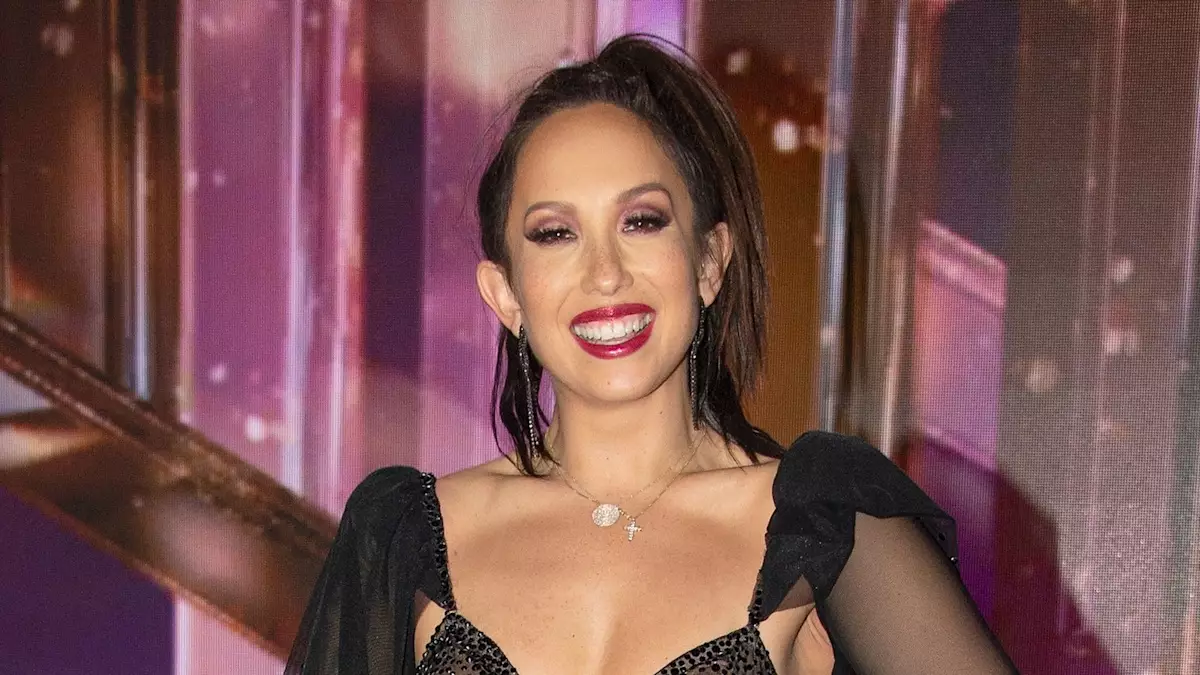Cheryl Burke, the once-familiar face from “Dancing with the Stars,” has stepped back into the spotlight—not just as a dancer but as a beacon of transformation. Recently, she shared a captivating video on Instagram that left her fans in awe. At 41 years old, Cheryl exhibits a strikingly lean physique that suggests she has made significant lifestyle changes. As she performed the trendy “Samba Whisk,” donned in workout leggings and a crop top, it was hard for viewers to reconcile the person before them with the familiar face they’d grown to love on the dance floor. Comments flooded in; many fans expressed their astonishment, suggesting they hardly recognized her. This unexpected shift underscores a broader narrative about the pressures of public life, body image, and self-acceptance.
Physical Transformation Versus Emotional Growth
Yet, while Cheryl’s altered appearance has captivated attention, what resonates more deeply are her recent reflections on mental health. In a candid “get ready with me” segment, she openly discussed her longstanding struggles with self-worth, vulnerability, and the exhausting effort to maintain a façade of strength. She aptly condemned the silence surrounding mental health, revealing that such silence often amplifies feelings of isolation and shame. This poignant realization that vulnerability can be seen as weakness is a sentiment shared by many who grapple with similar issues. In a world where the narrative often glorifies crackling resilience, Burke’s honesty serves as a refreshing and empowering reminder that admitting one’s struggles is a form of strength in itself.
A New Framework for Strength
Cheryl has redefined her understanding of strength through her journey—a departure from conventional beliefs that equate productivity with self-worth. In her introspective revelations, she emphasized that the idea of healing is neither linear nor hassle-free. It’s a tumultuous cycle, much like a rollercoaster ride, with its share of ups and downs. Removing societal pressure, she suggests that true healing involves acknowledging discomfort and understanding that it’s okay not to be okay. These words carry a liberating weight, encouraging those who resonate with her experiences to pursue their own paths of personal discovery without the burden of unrealistic expectations.
The Journey of Self-Compassion
As Cheryl shares her vulnerabilities, she highlights the importance of self-compassion and the need to rewrite personal narratives. She invites us to challenge the notion that experiencing emotions— especially those labeled as negative—is a liability. Instead, she advocates for recognizing those feelings as valid and essential to authentic growth. This profound shift in perspective is enlightening, particularly in a society that often ridicules emotional expression. She champions the act of simply being— a radical acceptance of one’s self-worth that does not necessitate constant achievement or high productivity.
Creating Meaningful Connections
Another compelling aspect of Cheryl’s renewed outlook lies in her emphasis on connection. She underscores the importance of reaching out for support—whether to friends or therapists—rather than retreating into isolation. In a culture that often glorifies independence and self-sufficiency, her message resonates universally: we all need help sometimes, and it takes courage to ask for it. This acknowledgment of interdependence is not only a step toward personal healing, but it also fosters a sense of community and shared vulnerability among others who are silently struggling.
The Holistic Understanding of Mental Wellness
Cheryl’s candid discussion culminates in a powerful insight: mental wellness is not synonymous with perpetual happiness. Instead, it embraces the full spectrum of human emotions. By stripping away the glamor of healing as a simplistic journey, she paints a much more authentic picture: it’s messy, it’s hard, and sometimes it’s downright uncomfortable. Her openness about therapy and the tools that have aided her underscores the necessity of evaluating mental health holistically, integrating emotional acknowledgment with actionable steps toward healing.
Cheryl Burke’s transformative journey encourages all of us to embrace our complexities, redefine our understanding of strength, and cultivate connections that foster genuine growth. In her vulnerability, she provides an uplifting message: healing, despite its challenges, is a journey profoundly worth undertaking.


Leave a Reply